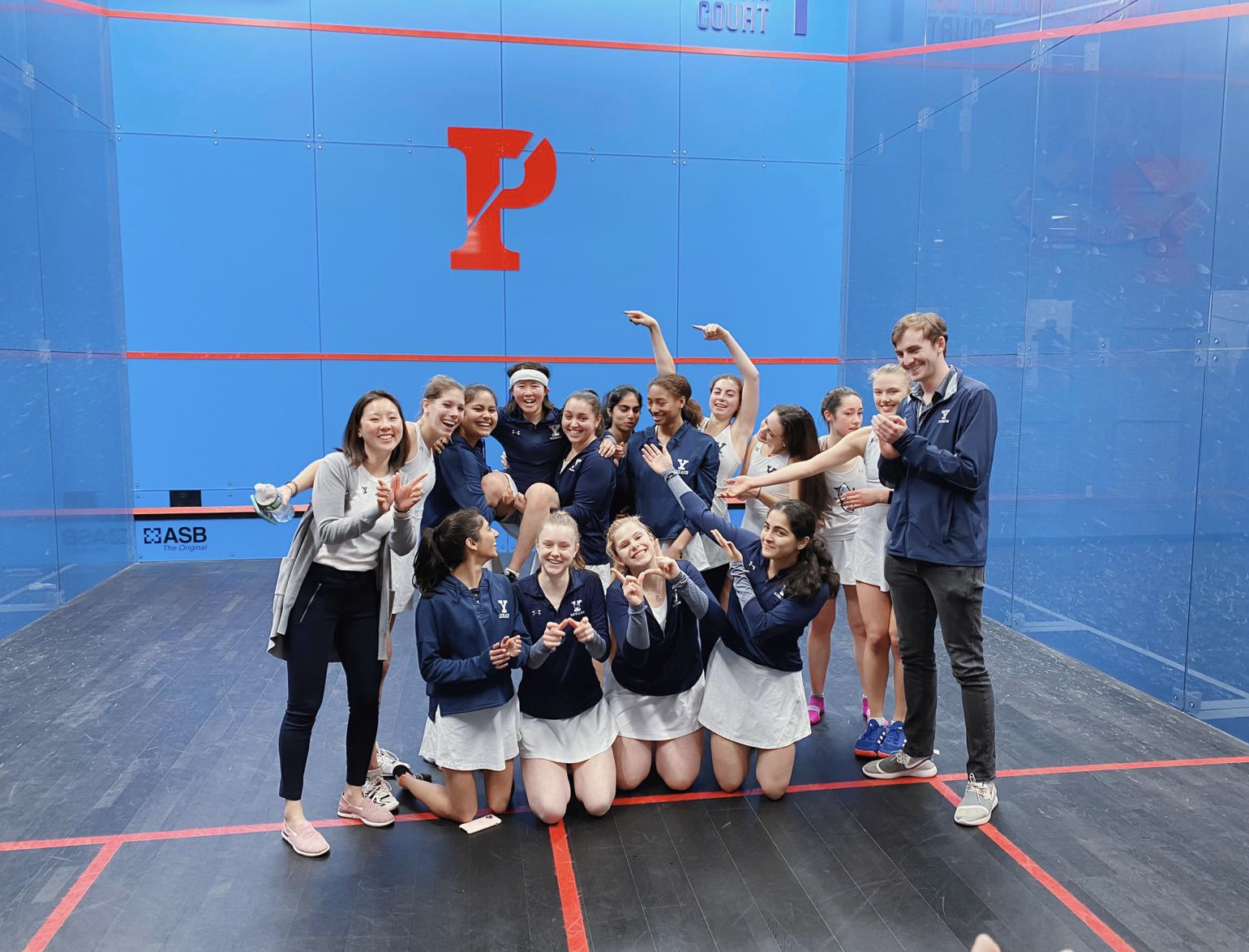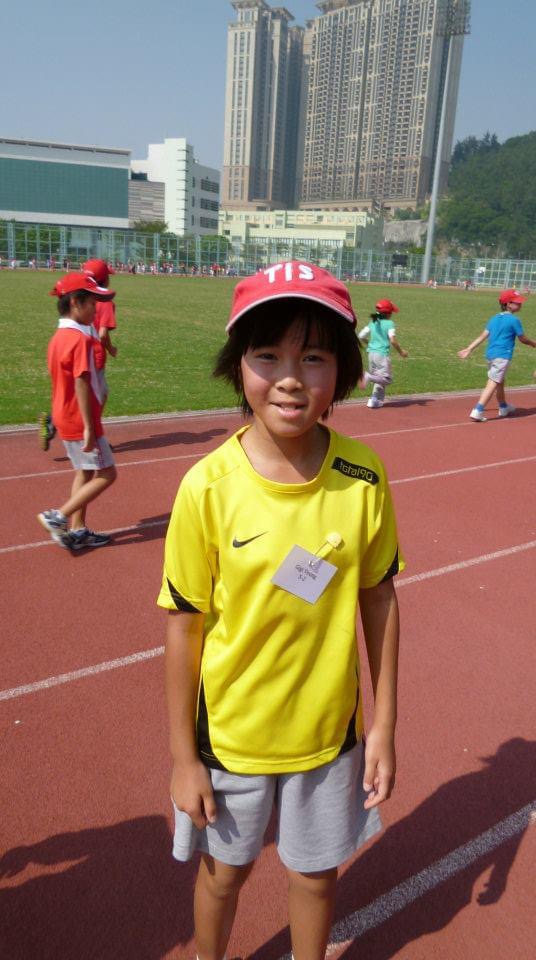
Gigi Yeung is a rising squash star from Macao, known for making history as the first medalist from Macao SAR at the Asian Individual Junior Championships, where she won bronze in 2017. Currently playing for the Yale Bulldogs and majoring in Mechanical Engineering, she also gained recognition as Macao SAR’s first PSA tour title winner at the 2024 City of Greater Shepparton International Open in Victoria, Australia.
Gigi has recently earned All-American honors—awarded to the top twenty women in collegiate squash—and was named MVP of the Yale squash team this past season. Looking ahead, she will represent Macao at the World Squash Team Championships in December, 2024.

Congratulations on your big win at the City Of Greater Shepparton International Open, Gigi! That must be an incredible feeling. Tell us about the experience of representing Macao at such a high-profile international competition.
Representing Macao at any tournament is both an honour and a responsibility. Despite being one of the lowest-seeded players, I approached the tournament with the same mindset as any other competition. Having competed in major events like the Asian Games and managing the intense academic and athletic life at Yale, I felt experienced and prepared for any kind of challenge. I knew I had nothing to lose. I have faced skepticism in the past, which made this tournament an opportunity to prove my abilities, and show that Macao players can also excel in squash. It was also a chance to inspire young squash players from Macao to believe in their potential and know that they, too, can achieve something.
How would you describe the process of moving from Macao to attend Yale? What were some of the biggest challenges and adjustments you had to navigate?
Moving from Macao to Yale was incredibly challenging, especially during my first year. In high school, I was used to being one of the top students, but Yale's academic environment was on a completely different level. I felt like there were so many students who were much smarter than me and always did better, which made me question my place there. Accepting that I wasn’t the best at everything was difficult, and I frequently overworked myself in pursuit of perfection. This led to spending too much time on individual tasks and not enough on others.
I was eager to take on the hardest classes and heaviest workload, but this led to constant fatigue, stress, and a decrease in the quality of my work. Over time, I learned that it’s okay not to be perfect and that giving my best effort is what truly matters. Finding a balance and ensuring I get enough rest is more important than striving for perfection, as it actually enhances my productivity.

As an engineering student at Yale, how do you manage your rigorous academic schedule alongside squash training and competition? What tips would you share with other student-athletes facing similar challenges?
Balancing a rigorous academic schedule with squash has challenged my time management skills. As an engineering student, projects can be unpredictable, and traveling for matches often means missing classes. With no extensions for assignments or exams, I had to stay organised. My advice to other student-athletes is to create a strict schedule and stick to it. Prioritising tasks, avoiding procrastination, and starting assignments early are really important. I often had to sacrifice my free time, but by staying disciplined, I’ve managed to maintain both my academic performance and athletic commitments.
When did you first realize you had an aptitude and passion for engineering and design? How did those early experiences shape your academic and career aspirations?
My passion for engineering and design began in the electronics and robotics class in grade 10. I loved designing and building robots and electronics, often spending countless hours refining my creations. Although I also enjoyed art and design—my art teacher even suggested I had the talent to be an architect—my interest in smaller projects ultimately led me to pursue mechanical engineering in university.
"TIS provided a supportive environment that allowed me to explore and try many things that I most likely couldn’t if I attended another school."
How did you first get involved in the fast-paced sport of squash? What drew you to this particular athletic pursuit?
I was introduced to squash at 10 years old when my parents signed me up for government summer activities. Although I played many sports growing up, including tennis, karate, swimming, and soccer, I was drawn to squash because of its fast pace and the fact that it’s an indoor sport, allowing me to play year-round regardless of the weather.
Reports indicate squash may finally make its Olympic debut in 2028 L.A. What would it mean to you to compete at the Olympics?
The inclusion of squash in the 2028 Olympics is a significant milestone for the sport. However, as an athlete from Macao, I won’t have the opportunity to compete because Macao is not recognised by the IOC. While it’s disappointing not to be able to participate, I’m thrilled to see squash gain the global recognition it deserves. Competing in the Olympics would be a dream for me, allowing me to represent Macao in the biggest sports event in the world.
What advice would you give TIS students aspiring to excel in academics and athletics?
Dream big and set ambitious. Dedication, hard work and perseverance are key. If you’re willing to commit fully to your goals and do whatever it takes, you might achieve things you never thought possible. Finding balance is also crucial for managing both your academic and athletic commitments.
What are your main goals and dreams for your squash career in the next few years?
I aim to break into the top 100 of the world rankings and win a medal at the 2026 Asian Games.
How did your time at TIS influence you the person you are today and how are you involved in mentoring young squash players?
TIS provided a supportive environment that allowed me to explore and try many things that I most likely couldn’t if I attended another school. Always encouraged to follow my heart and try something new, I was able to find something that I truly enjoy and continue with it. I learned not to be afraid to take risks and try new things, even if they seemed impossible. This mindset gave me the courage to pursue seemingly impossible goals, which led me to an Ivy League university and becoming the first squash player from Macao to win a professional squash tournament. As a senior at Yale, I also help lead my teammates and mentor younger players in Macao, sharing my experiences to inspire them.
What are your fondest memories from TIS and what makes you proud to be an alum?
Definitely Experience Week, where I made new friends and explored new activities like kayaking, mountain biking, and archery while travelling to many different places and experiencing different cultures. I always had so much fun and made great memories on every Experience Week trip. I’m proud to be a TIS alum because our alumni are doing unique and meaningful things around the world. The TIS alumni community is really inspiring!
.JPG)

